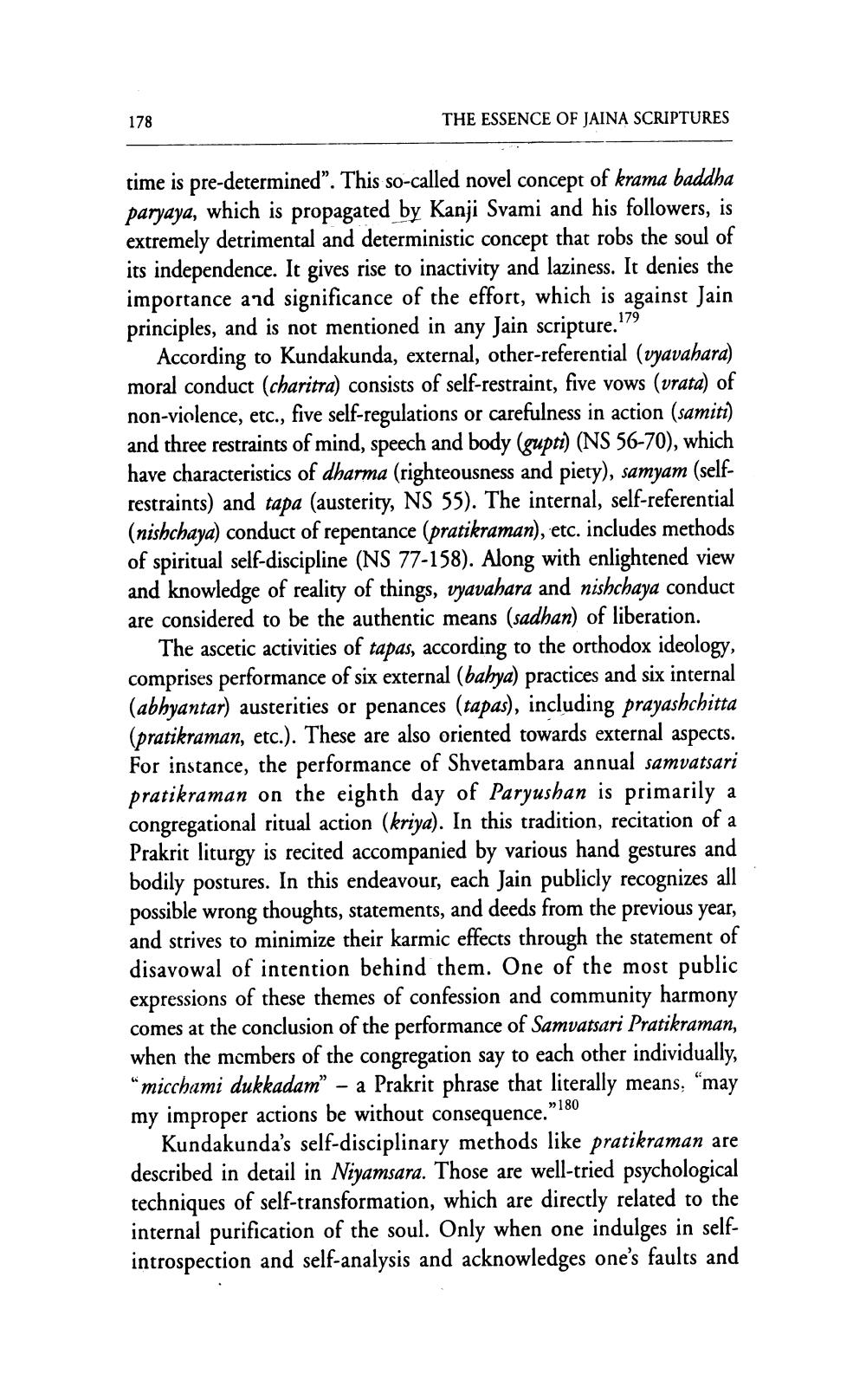________________
178
THE ESSENCE OF JAINA SCRIPTURES
time is pre-determined". This so-called novel concept of krama baddha paryaya, which is propagated by Kanji Svami and his followers, is extremely detrimental and deterministic concept that robs the soul of its independence. It gives rise to inactivity and laziness. It denies the importance and significance of the effort, which is against Jain principles, and is not mentioned in any Jain scripture.'
179
According to Kundakunda, external, other-referential (vyavahara) moral conduct (charitra) consists of self-restraint, five vows (vrata) of non-violence, etc., five self-regulations or carefulness in action (samiti) and three restraints of mind, speech and body (gupti) (NS 56-70), which have characteristics of dharma (righteousness and piety), samyam (selfrestraints) and tapa (austerity, NS 55). The internal, self-referential (nishchaya) conduct of repentance (pratikraman), etc. includes methods of spiritual self-discipline (NS 77-158). Along with enlightened view and knowledge of reality of things, vyavahara and nishchaya conduct are considered to be the authentic means (sadhan) of liberation.
The ascetic activities of tapas, according to the orthodox ideology, comprises performance of six external (bahya) practices and six internal (abhyantar) austerities or penances (tapas), including prayashchitta (pratikraman, etc.). These are also oriented towards external aspects. For instance, the performance of Shvetambara annual samvatsari pratikraman on the eighth day of Paryushan is primarily a congregational ritual action (kriya). In this tradition, recitation of a Prakrit liturgy is recited accompanied by various hand gestures and bodily postures. In this endeavour, each Jain publicly recognizes all possible wrong thoughts, statements, and deeds from the previous year, and strives to minimize their karmic effects through the statement of disavowal of intention behind them. One of the most public expressions of these themes of confession and community harmony comes at the conclusion of the performance of Samvatsari Pratikraman, when the members of the congregation say to each other individually, "micchami dukkadam" - a Prakrit phrase that literally means, "may my improper actions be without consequence."
"180
Kundakunda's self-disciplinary methods like pratikraman are described in detail in Niyamsara. Those are well-tried psychological techniques of self-transformation, which are directly related to the internal purification of the soul. Only when one indulges in selfintrospection and self-analysis and acknowledges one's faults and




